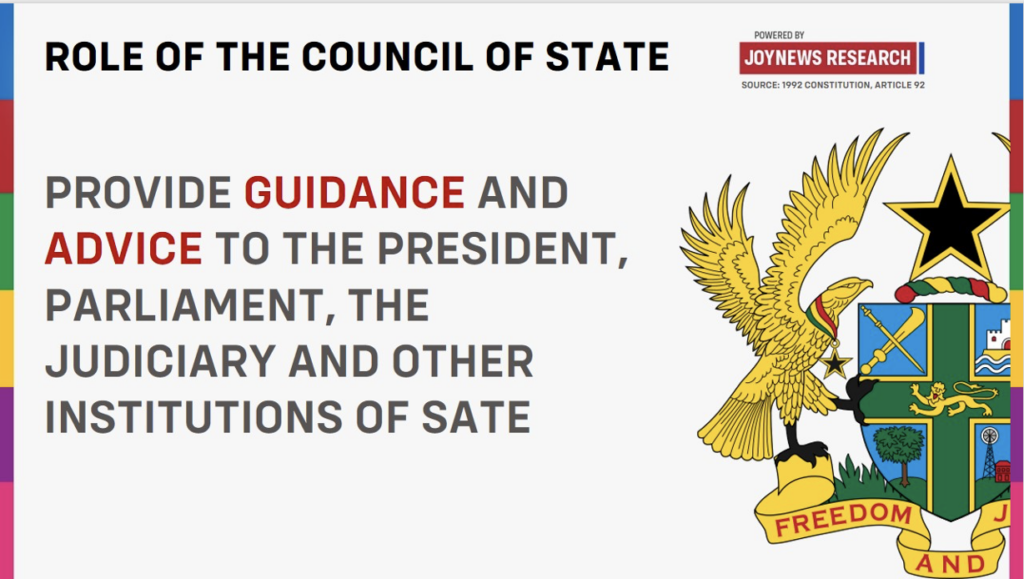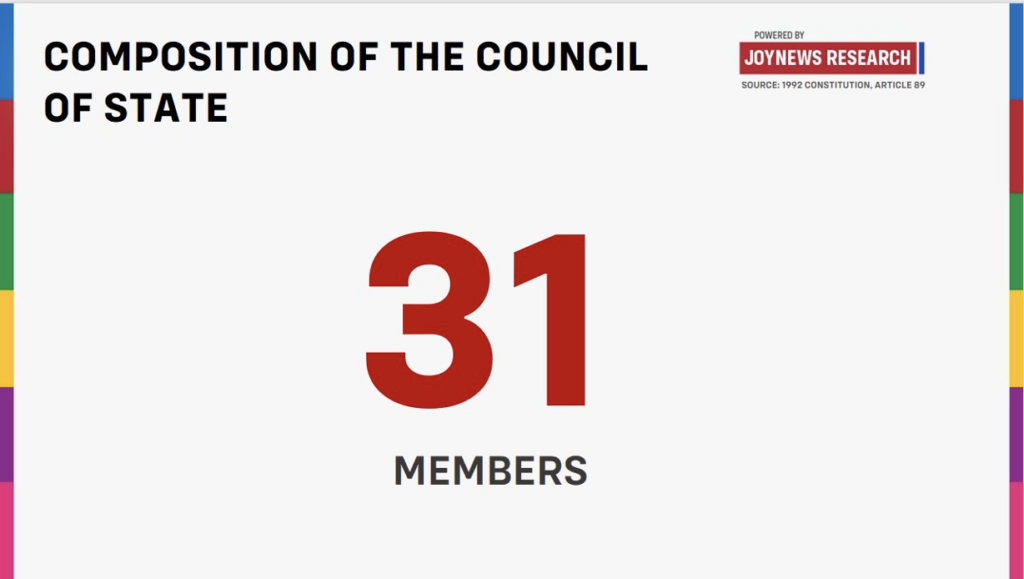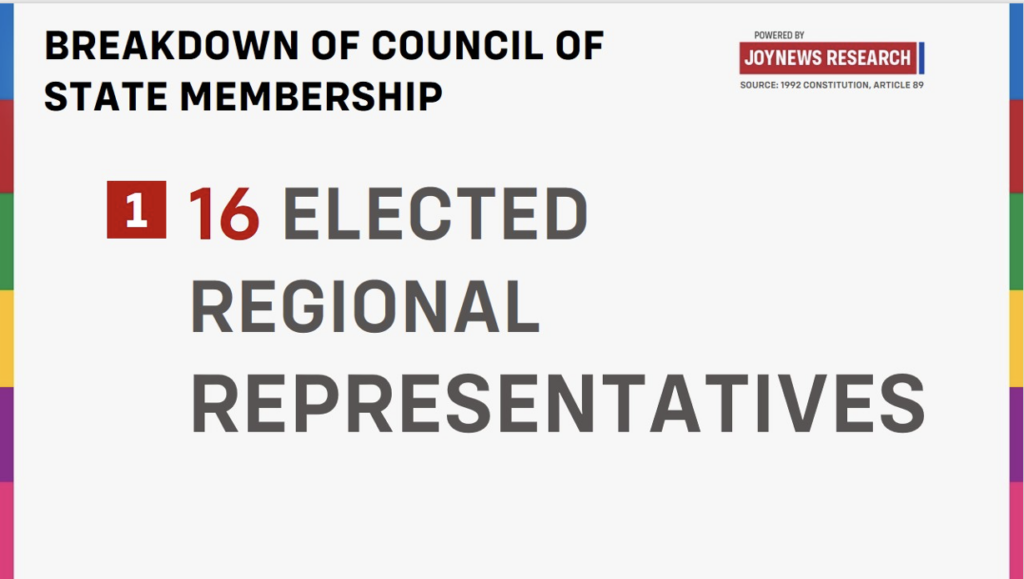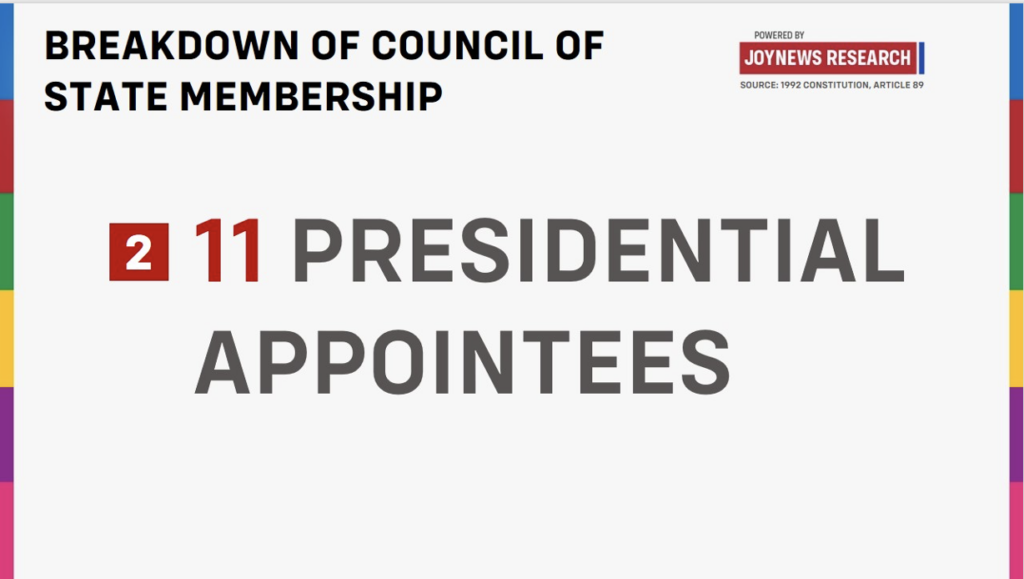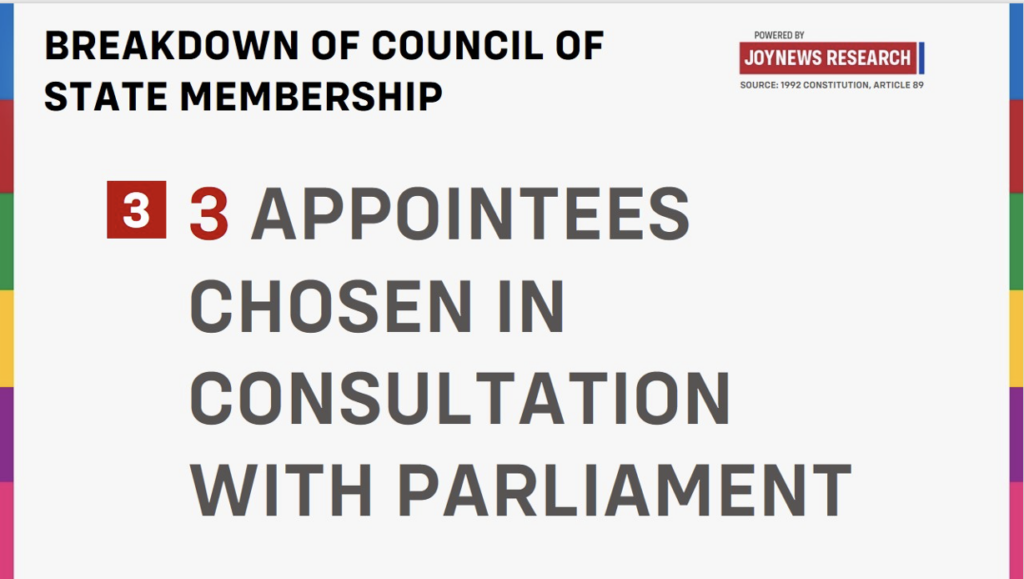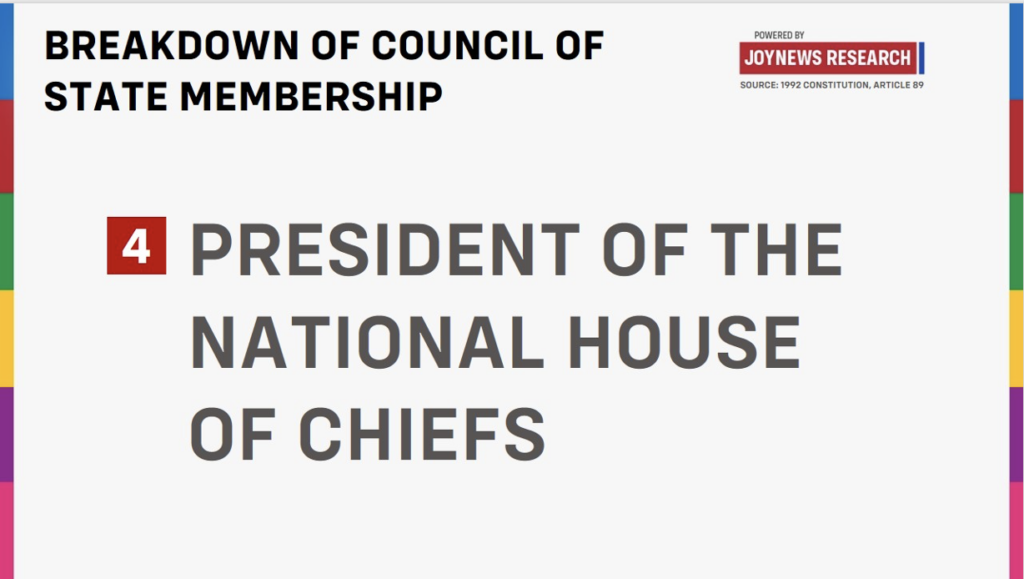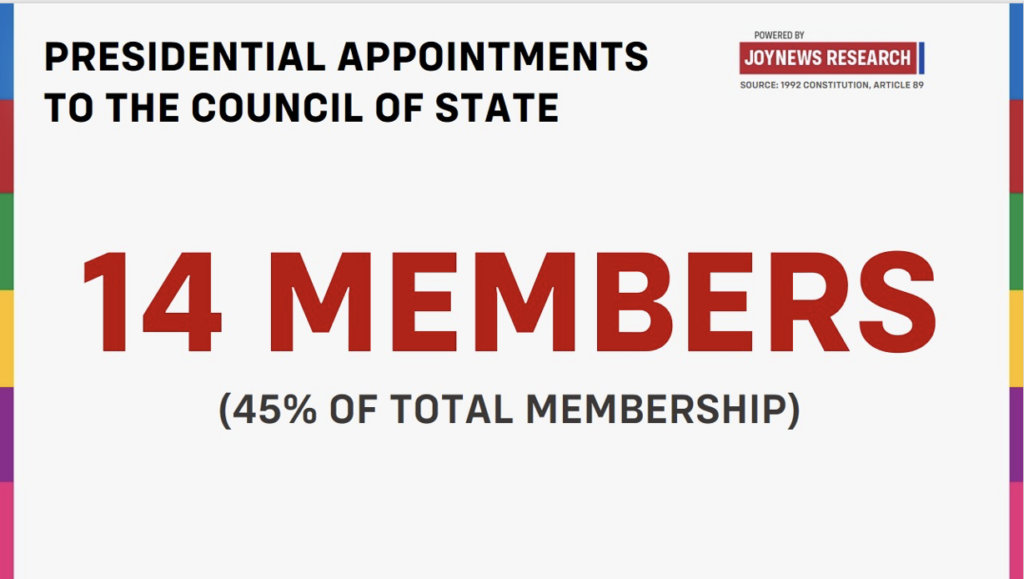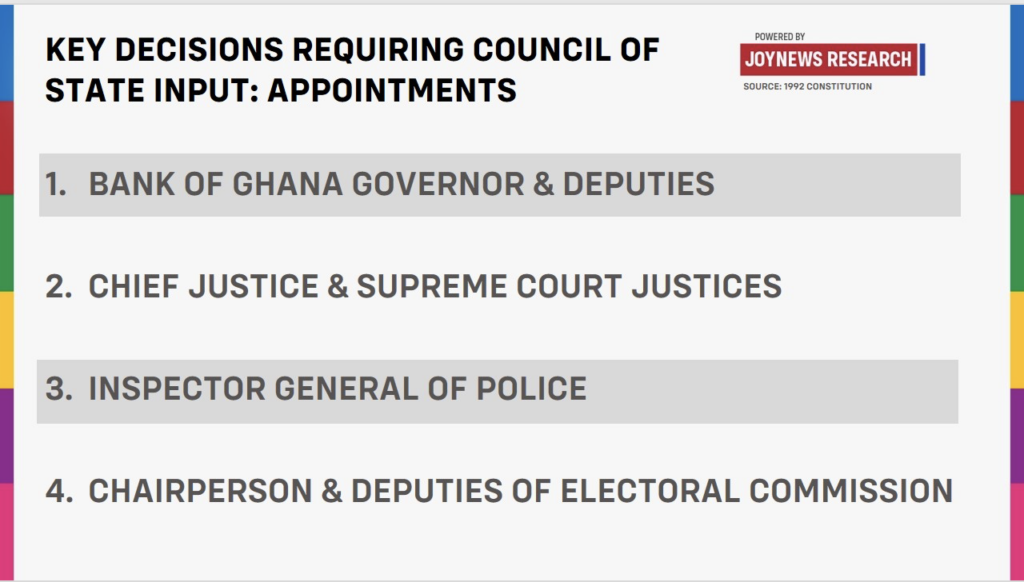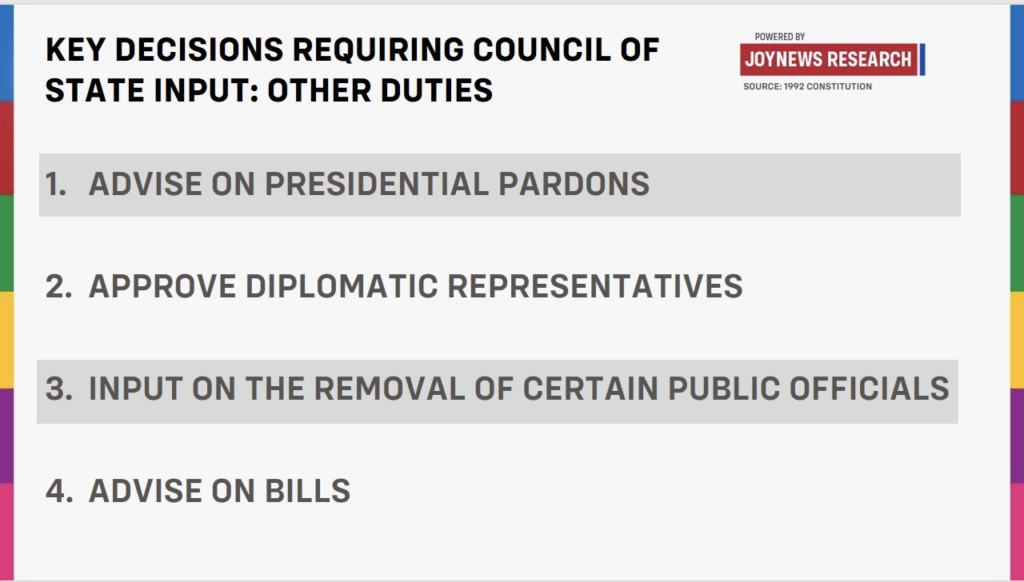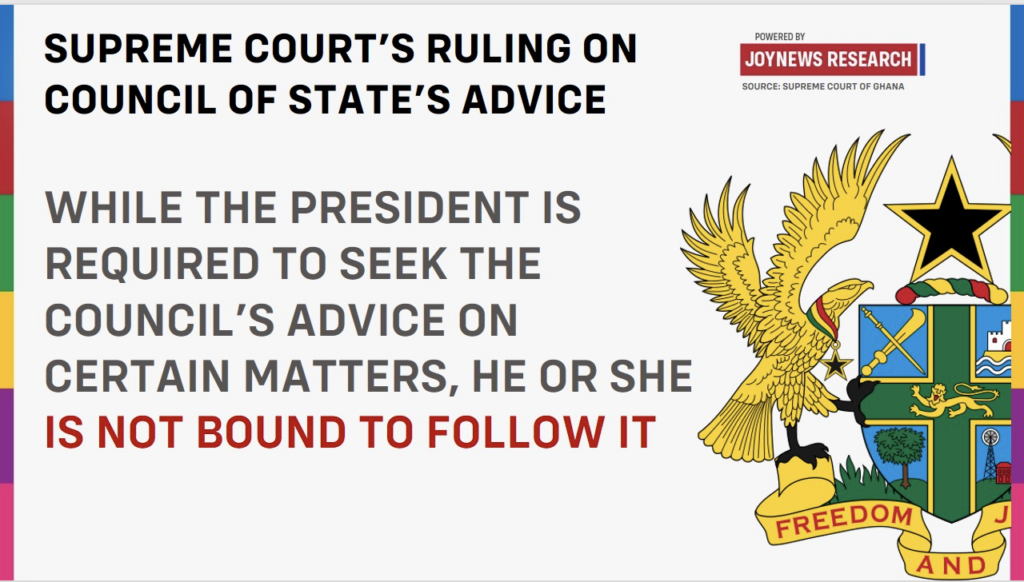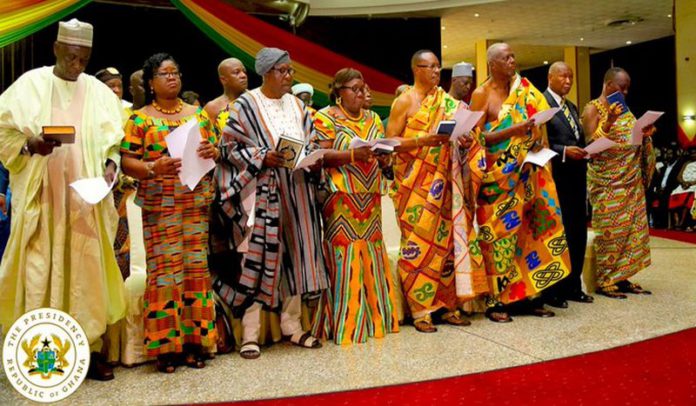The Council of State sits at the heart of Ghana’s governance system, billed as a council of elders offering wisdom and oversight to the presidency.
Yet, as the country elects new members, questions linger about its true influence.
With nearly half of its 31 members directly or indirectly appointed by the president, concerns persist over its independence. Past attempts at reform have stalled, leaving its advisory role intact but not necessarily impactful.
While the council weighs in on key appointments and policy decisions, its advice is not binding—meaning the president can simply acknowledge it and move on.
So, is the Council of State a meaningful check on power or just a costly formality?
